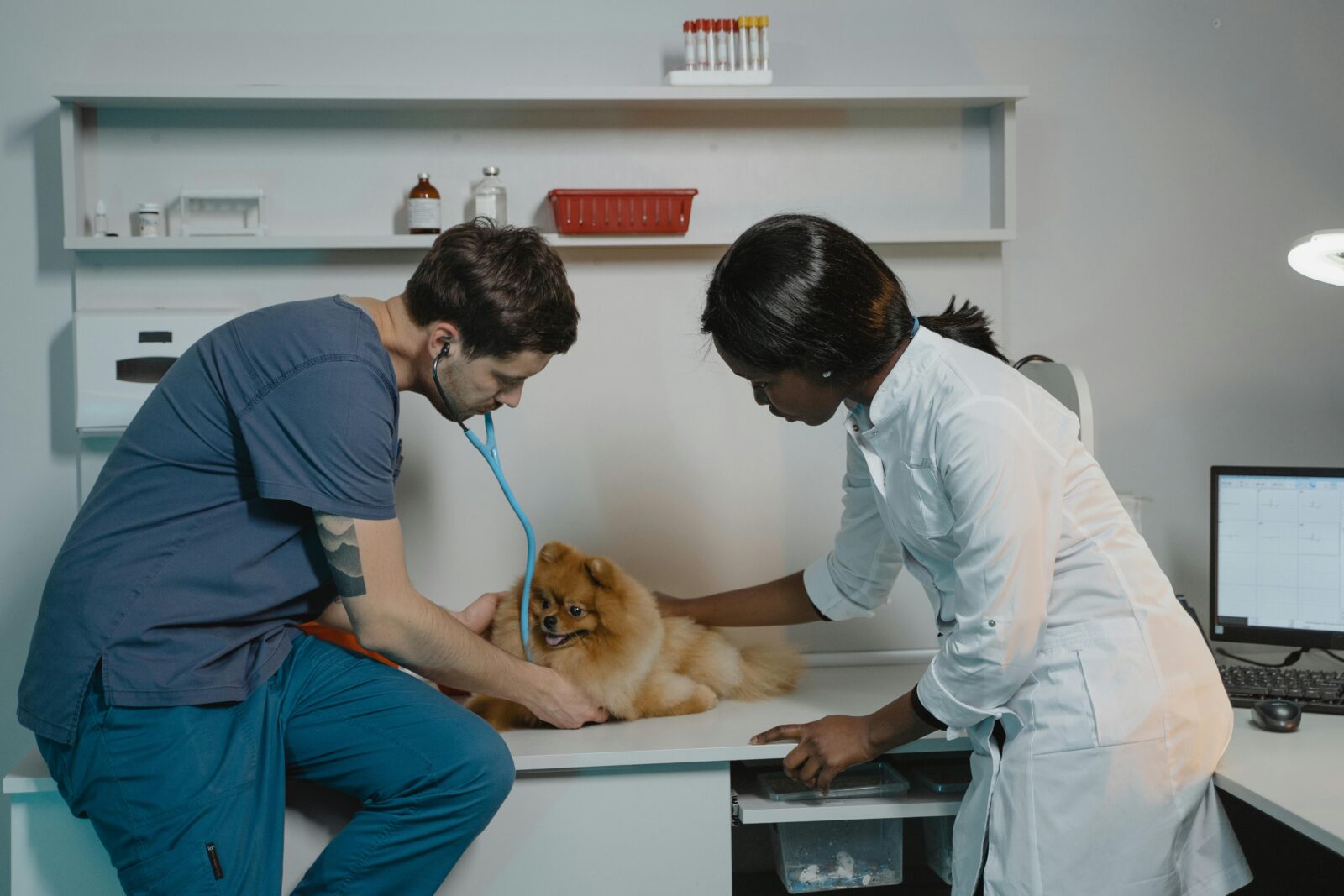As a responsible dog owner, ensuring your pet’s health is a top priority. When your dog is on medication, regular vet check-ups become even more crucial. Medications can bring about changes in your dog’s body that may not be immediately noticeable, and routine visits to the vet help to monitor these effects, adjust dosages, and ensure overall well-being. This article delves into the importance of regular vet check-ups when your dog is on medications, outlining key reasons and tips for keeping your furry friend healthy.
1. Monitoring the Effectiveness of Medication
One of the primary reasons for regular vet visits when your dog is on medication is to monitor the effectiveness of the treatment. While the medication might have been prescribed to address a specific issue, regular check-ups help the vet determine if the medication is working as intended. Sometimes, the initial dosage may need to be adjusted based on how your dog responds.
Key Points:
- Evaluating Response: Your vet will assess whether the medication is achieving the desired outcome, whether it’s reducing pain, controlling symptoms, or treating an underlying condition.
- Dosage Adjustments: If the medication isn’t providing the expected results, the vet may recommend altering the dosage or switching to a different treatment.
2. Identifying and Managing Side Effects
Medications, whether prescription or over-the-counter, can sometimes cause side effects. These might range from mild to severe and may not always be obvious to pet owners. Regular vet check-ups help in identifying any adverse reactions early on, allowing for prompt intervention.
Key Points:
- Early Detection: Vets can spot subtle signs of side effects that might be missed at home, such as changes in appetite, behavior, or organ function.
- Preventive Action: If side effects are detected, your vet can modify the treatment plan to prevent further complications. This might involve changing the medication, adjusting the dosage, or adding supplements to counteract the side effects.
3. Preventing Drug Interactions
If your dog is on multiple medications, there’s a risk of drug interactions, which can reduce the efficacy of treatments or lead to harmful side effects. Regular vet visits ensure that all medications your dog is taking are working together safely.
Key Points:
- Comprehensive Review: During check-ups, your vet will review all medications, including any new ones that might have been added, to ensure they don’t negatively interact.
- Adjustments if Needed: If a drug interaction is identified, the vet can adjust the treatment plan, either by changing medications or altering the timing of administration.
4. Monitoring Long-term Health Impacts
Some medications can have long-term effects on your dog’s health, especially if they are used for an extended period. Regular vet check-ups allow for the monitoring of your dog’s overall health, ensuring that the benefits of the medication continue to outweigh any potential risks.
Key Points:
- Organ Function: Certain medications, like pain relievers or steroids, can affect organs such as the liver or kidneys. Regular blood tests during vet visits can help monitor organ function and detect any early signs of damage.
- Health Tracking: By regularly tracking your dog’s health, the vet can make informed decisions about whether to continue, adjust, or discontinue medication based on long-term effects.
5. Tailoring Treatment Plans Over Time
Your dog’s health needs may change over time, and so might their response to medication. Regular vet visits provide an opportunity to reassess the treatment plan and make adjustments based on your dog’s current condition.
Key Points:
- Age-Related Changes: As dogs age, their bodies may process medications differently. What worked well when they were younger may need to be adjusted as they grow older.
- Condition Progression: If your dog’s health condition changes, the treatment plan may need to be altered accordingly, which can only be effectively managed through regular vet visits.
6. Ensuring Proper Medication Administration
Administering medication to your dog can sometimes be tricky. During regular check-ups, vets can provide guidance on proper administration techniques, ensuring that your dog receives the full benefit of their treatment.
Key Points:
- Administration Techniques: Your vet can demonstrate how to administer medications correctly, whether they are pills, injections, or topical treatments.
- Compliance Checks: Regular visits also allow the vet to ensure that the medication is being given correctly at home and that the prescribed regimen is being followed.
7. Managing Chronic Conditions
For dogs with chronic conditions like arthritis, diabetes, or heart disease, medication is often a long-term or even lifelong requirement. Regular vet check-ups are essential for managing these conditions effectively and ensuring your dog maintains a good quality of life.
Key Points:
- Routine Monitoring: Chronic conditions require regular monitoring to ensure that the treatment plan remains effective and that your dog’s condition is stable.
- Adjusting Treatment: Over time, the treatment for chronic conditions may need to be adjusted, and regular vet visits are the best way to ensure these adjustments are made in a timely manner.
8. Veterinary Expertise and Support
Vets have the expertise to recognize issues that might not be apparent to pet owners. Regular check-ups provide you with access to professional support, ensuring that your dog receives the best possible care.
Key Points:
- Professional Insight: Vets can provide insights and advice that you might not be able to find elsewhere, especially when it comes to managing medication-related concerns.
- Peace of Mind: Knowing that a professional is regularly monitoring your dog’s health provides peace of mind and ensures that any potential issues are addressed promptly.
9. Building a Strong Vet-Owner Relationship
Regular vet visits help strengthen the relationship between you, your vet, and your dog. A strong relationship with your vet can lead to better communication and more personalized care for your dog.
Key Points:
- Better Communication: Regular visits create opportunities for open communication, allowing you to discuss any concerns or observations with your vet.
- Personalized Care: Over time, your vet will become more familiar with your dog’s health history, allowing them to provide more personalized and effective care.
Conclusion
When your dog is on medication, regular vet check-ups are not just recommended—they are essential. These visits help monitor the effectiveness of treatment, identify side effects, prevent drug interactions, and ensure the long-term health of your pet. By maintaining a close relationship with your vet and keeping up with routine check-ups, you can ensure that your dog receives the best possible care and enjoys a happy, healthy life.











Leave a Reply